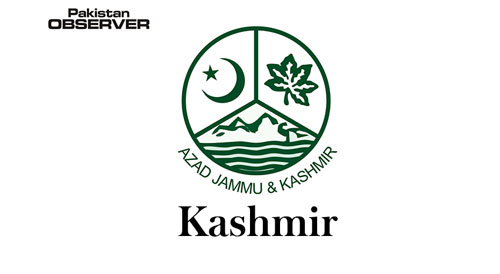ISLAMABAD The President of London-based Jammu and Kashmir Council for Human Rights (JKCHR), Dr Syed Nazir Gilani, currently on a visit of Pakistan and Azad Kashmir, has welcomed the interest shown by France in the prevailing situation in occupied Kashmir. Dr Syed Nazir Gilani in a statement in Islamabad, commenting on remarks made by Ambassador of France, Mr Marc Baréty, published in a section of press in Pakistan, said that the remarks were far remote from the continued position taken by France at the UN Security Council, during debates on Kashmir question. The JKCHR President said that Kashmir was not a bilateral territorial dispute as stated by the ambassador. It is contrary to the statement made by France at the 539th meeting of the UN Security Council held on 30th March 1951. He referred to the French position, which stated, “Resolutions of 13th August 1948 and 5th January 1949, to which we must always return because they won the express agreement of both India and Pakistan. If the parties are unable to reach agreement on the plan submitted to them, provision is made for arbitration, and, to make assurance doubly sure, arbitration is to be carried out by an arbitrator or panel of arbitrators appointed not by a political body but by the President of the International Court of Justice.” Dr Nazir Gilani said that the jurisprudence of Kashmir case in the recognition of the rights and dignity, the security and the self-determination of the historic people of Jammu and Kashmir, under the auspices of the United Nations had been enriched and perfected by the contributions made by Argentina, US, UK, France, Norway, Columbia, Australia, Syria, Norway, Cuba and China during the debates on “the Jammu and Kashmir Situation” and later “the India-Pakistan Question” at the UN Security Council. The JKCHR President maintained that bilateral engagement was a component in Article 33 of UN Charter, but it would be Article 103 that would restrain infinite futile engagement and failure in the bilateral dialogue. He pointed out that Document III submitted by Pakistan on 15th January 1948, to the UN Security Council, containing particulars of Pakistan’s case had admitted that “They have already unsuccessfully tried over a period of many months to seek a solution of the disputes between the two Dominions by the methods described in Article 33 of the Charter.” Dr Nazir Gilani said that France should not only honour its commitments made at the UN Security Council but also highlight the “positive duty” of the Security Council, pointed out in respect of Jammu and Kashmir situation in February 1957. United States of America was the first UN Security Council member to address the question of a “positive duty of the Security Council”. United States of America at the 768th meeting of the UN Security Council held on 15th February 1957 pointed out that Security Council had a ‘positive duty’ and “unless the parties are able to agree upon some other solution, the solution which was recommended by the Security Council should prevail.” The JKCHR President drew French Ambassador’s attention to Para 26, where United States of America has said, “Thus the Council again has a positive duty to assist the parties in finding a just and equitable solution. The Security Council’s overriding endeavour in connection with Kashmir has always been to secure an amicable settlement acceptable to both parties. In doing this, it has sought to build upon the gains which have been made in the past and upon agreements which have been reached by the parties. As the Secretary of State of the United States said on 5th February 1957 at a press conference.” Dr Nazir Gilani expressed hope that France would honour its commitments and the principle of ‘positive duty’ of UN Security Council, in respect of right to self-determination of the people of Jammu and Kashmir.—KMS









